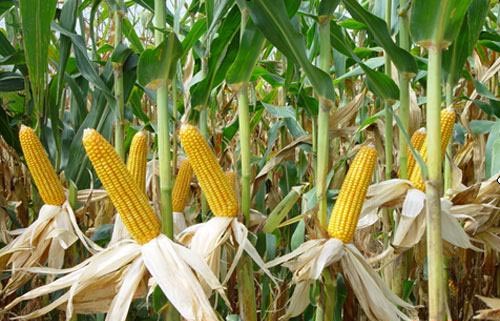Experts urge GMOs be removed from banned list

illustration photo
>> Four GM corn traits receive food and feed safety certificates
The Ministry of Planning and Investment has proposed that production of genetically-modified (GM) products be included in the list of eight sectors and professions banned from business and investment in the draft amendment to the existing Law on Investment.
The proposal is under discussion and the draft is expected to be adopted this November.
However, Nguyen Thi Kieu, director of the southern city of the Can Tho Municipal Department of Agriculture and Rural Development (DARD) told VIR that production of GM crops should be removed from the list.
“GM crops can resist pests and viruses, and provide high productivity. Meanwhile, current varieties of maize and corn can’t resist pests and viruses, so farmers have to use pesticides, which can cause major environmental pollution and affect health,” she said.
Le Muon, deputy director of the south central province of Quang Nam’s DARD also said that GM crop production should be allowed in Vietnam. “GM crops can resist wild grass and pests. They will help farmers save on production and labour costs, as they are 20 per cent cheaper than locally-made products.”
Kieu and Muon also noted that Vietnam has, over the past many years, been importing many GM materials such as maize, beans and corn for making animal feed.
Vietnam has spent around $600 million importing 2.33 million tonnes of maize in this year’s first six months. It is expected that the country will import more than 4.5 million tonnes of the product, worth more than $1 billion, this year.
“Thus, there is no reason for us to ban GM crop production in Vietnam,” Muon said.
Early this month, the first four GM maize varieties were licensed for both human consumption and use in animal feed in Vietnam.
The Vietnamese Ministry of Agriculture and Rural Development (MARD) granted licences to four GM corn varieties, including Bt 11 and MIR162 developed by Syngenta Vietnam, as well as MON 89034 and NK603 by Monsanto’s Dekalb Vietnam.
Of these patented GM products, MON 89034, NK603 and Bt 11 are insect-resistant, while NK603 is designed to resist the herbicide glyphosate, and was first introduced to the US market in the 1970s under the name Roundup Ready.
MARD granted certifications to these four GM maize varieties after careful consideration and the approval of the country’s Council of Food Safety for GM Food and Animal Feed.
The licensing agencies said the products had no harmful effects on health.
The licences are considered a first step in the creation of a legal framework regarding GM foods, and the government is in the process of speeding up the application of such technologies in agriculture. This is in-line with the plan for sustainable agriculture through 2020.
According to agricultural experts, the proposal is unsuitable to the government’s strategy on biotechnological development in the 2010-2020 period and the prime ministerial Decision 11/2006/QD-TTg on approving the national key programme on biological development and application in agricultural development and rural development through 2020.
Under the decision, between 2011 and 2015 some GM crops such as maize, corn, beans and cotton were to be produced and by 2020 agriculture will take up 50 per cent of the nation’s total science and technology output, aimed at increasing the overall value of the agriculture sector.
What the stars mean:
★ Poor ★ ★ Promising ★★★ Good ★★★★ Very good ★★★★★ Exceptional
Latest News
More News
- MAE names big 10 policy wins in 2025 (February 06, 2026 | 08:00)
- US firms deepen energy engagement with Vietnam (February 05, 2026 | 17:23)
- Vietnam records solid FDI performance in January (February 05, 2026 | 17:11)
- Site clearance work launched for Dung Quat refinery upgrade (February 04, 2026 | 18:06)
- Masan High-Tech Materials reports profit: a view from Nui Phao mine (February 04, 2026 | 16:13)
- Hermes joins Long Thanh cargo terminal development (February 04, 2026 | 15:59)
- SCG enhances production and distribution in Vietnam (February 04, 2026 | 08:00)
- UNIVACCO strengthens Asia expansion with Vietnam facility (February 03, 2026 | 08:00)
- Cai Mep Ha Port project wins approval with $1.95bn investment (February 02, 2026 | 16:17)
- Repositioning Vietnam in Asia’s manufacturing race (February 02, 2026 | 16:00)
















 Mobile Version
Mobile Version